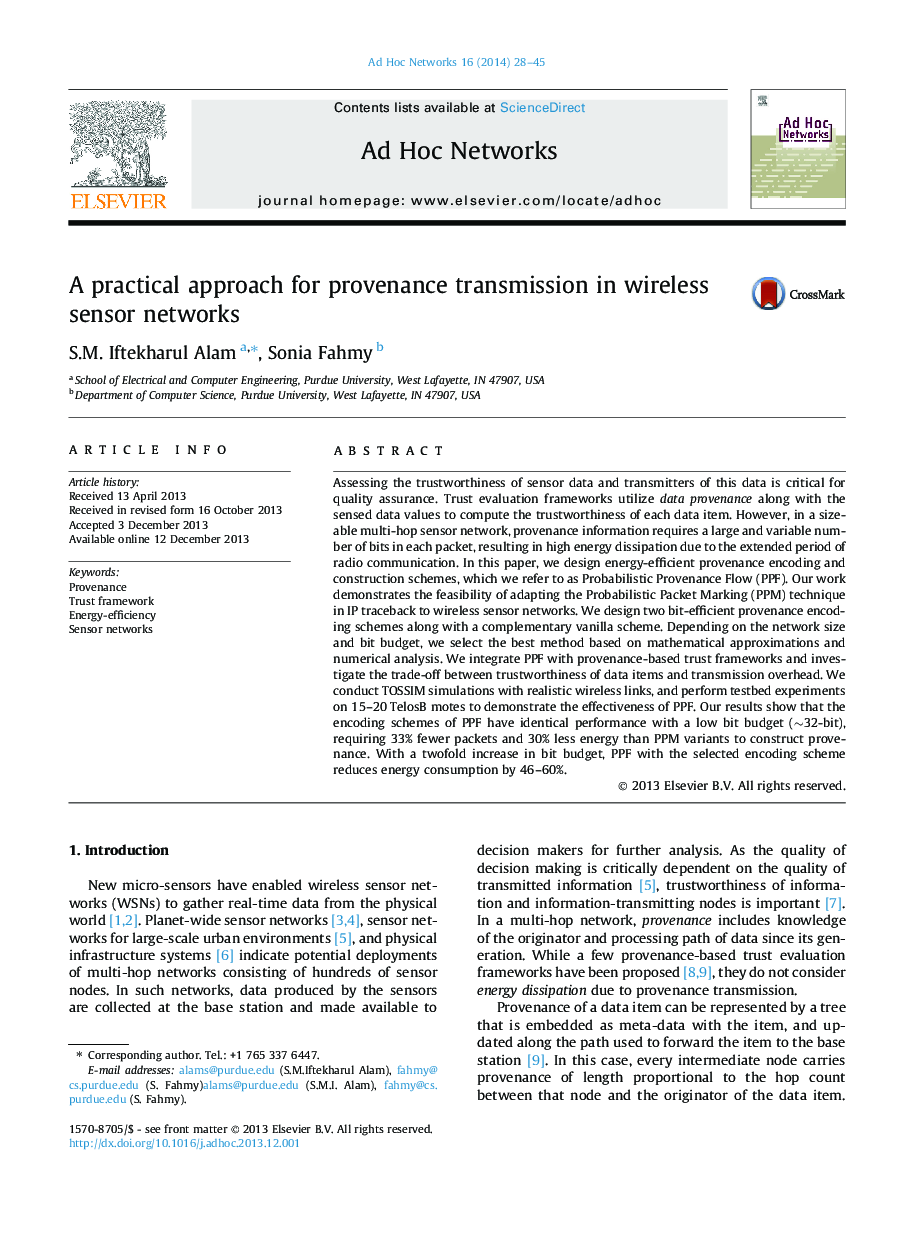| Article ID | Journal | Published Year | Pages | File Type |
|---|---|---|---|---|
| 444472 | Ad Hoc Networks | 2014 | 18 Pages |
Assessing the trustworthiness of sensor data and transmitters of this data is critical for quality assurance. Trust evaluation frameworks utilize data provenance along with the sensed data values to compute the trustworthiness of each data item. However, in a sizeable multi-hop sensor network, provenance information requires a large and variable number of bits in each packet, resulting in high energy dissipation due to the extended period of radio communication. In this paper, we design energy-efficient provenance encoding and construction schemes, which we refer to as Probabilistic Provenance Flow (PPF). Our work demonstrates the feasibility of adapting the Probabilistic Packet Marking (PPM) technique in IP traceback to wireless sensor networks. We design two bit-efficient provenance encoding schemes along with a complementary vanilla scheme. Depending on the network size and bit budget, we select the best method based on mathematical approximations and numerical analysis. We integrate PPF with provenance-based trust frameworks and investigate the trade-off between trustworthiness of data items and transmission overhead. We conduct TOSSIM simulations with realistic wireless links, and perform testbed experiments on 15–20 TelosB motes to demonstrate the effectiveness of PPF. Our results show that the encoding schemes of PPF have identical performance with a low bit budget (∼32-bit), requiring 33% fewer packets and 30% less energy than PPM variants to construct provenance. With a twofold increase in bit budget, PPF with the selected encoding scheme reduces energy consumption by 46–60%.
